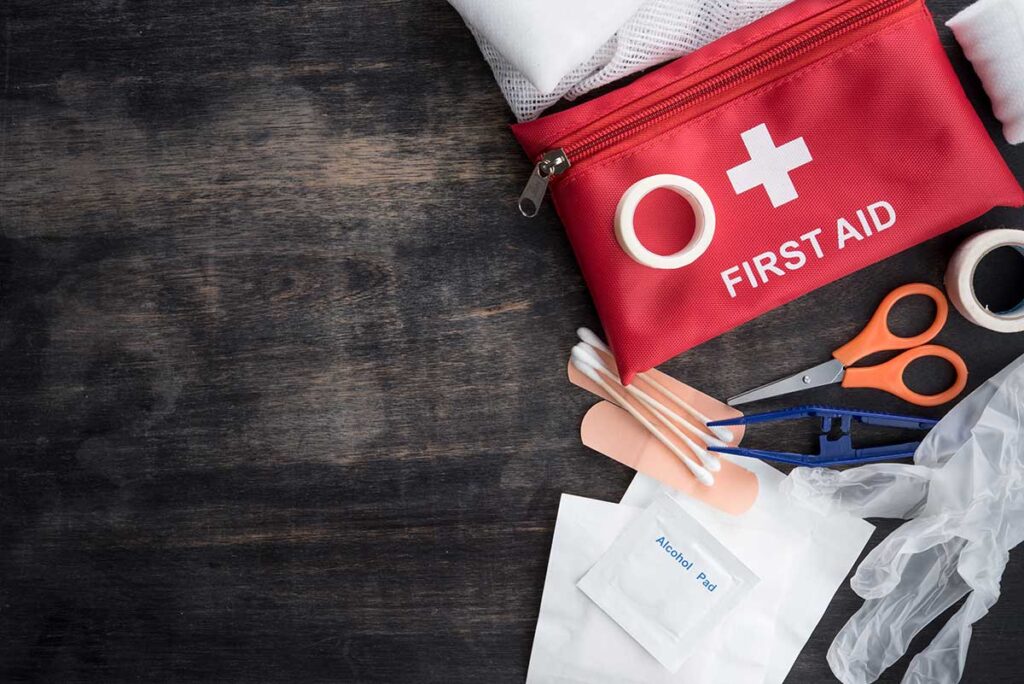Accidents are inevitable. So whether you’re at home, in the workplace or outdoors, they’re an event that should always be planned for. So the question is: Are you ready?
According to the National Safety Council, falls, choking, suffocation and burns are the leading causes of preventable injuries at home. And while they all pose serious threats and require urgent attention from a healthcare professional, in many cases your immediate response before help arrives can be the difference between life and death.
There are a few steps you can take to help make sure you and your family are ready for any accidents:
1. Keep a fully stocked first-aid kit at home
First aid kits are a simple but effective tool to have. Be sure to buy a kit that includes essentials like:
- Sterile gauze pads (dressings) in small and large sizes
- Roller and triangular bandages
- Adhesive tape
- Scissors
- Tweezers
- Instant ice packs
- Antiseptic wipes or soap
- Medications like paracetamol and aspirin
Once you have the kit at home, keep it in a safe but accessible location. Resist the temptation of raiding the kit for non-serious events. Doing so might leave you short of supplies when you really need them.
2. Take a first aid course
There are very few life-saving things that you as an individual can do on your own. But the skills learned in a first aid course can save lives. First aid courses tackle topics like choking, burns, bleeding and how to deliver effective CPR.
In addition, First aid skills are particularly useful to have when living with babies or young children.
Most adults have had first aid training at some point in their lives (school, boy scouts, etc) but could use a refresher. If it has been more than ten years, take a class or visit YouTube for a first aid overview:
3. Know when you need to get help
Just as important as being prepared for an emergency is knowing when you need to get help and where to get it. Basic first aid is useful for getting you through the first few minutes of an accident but depending on its severity, you may need to follow it up with a call to 911 or a trip to your nearest urgent care center for less serious issues.
All life-threatening conditions should be dealt with at an emergency department. Medical emergencies such as difficulty breathing, chest pains or heavy bleeding must be dealt with in a hospital ER.
Urgent care centers can deal with less urgent problems such as:
- Broken bones
- Minor burns
- Strains/sprains
- Cuts
Accidents are a fact of life. Being prepared with some knowledge and a few key items is crucial to ensuring that they’re dealt with as quickly and safely as possible.

